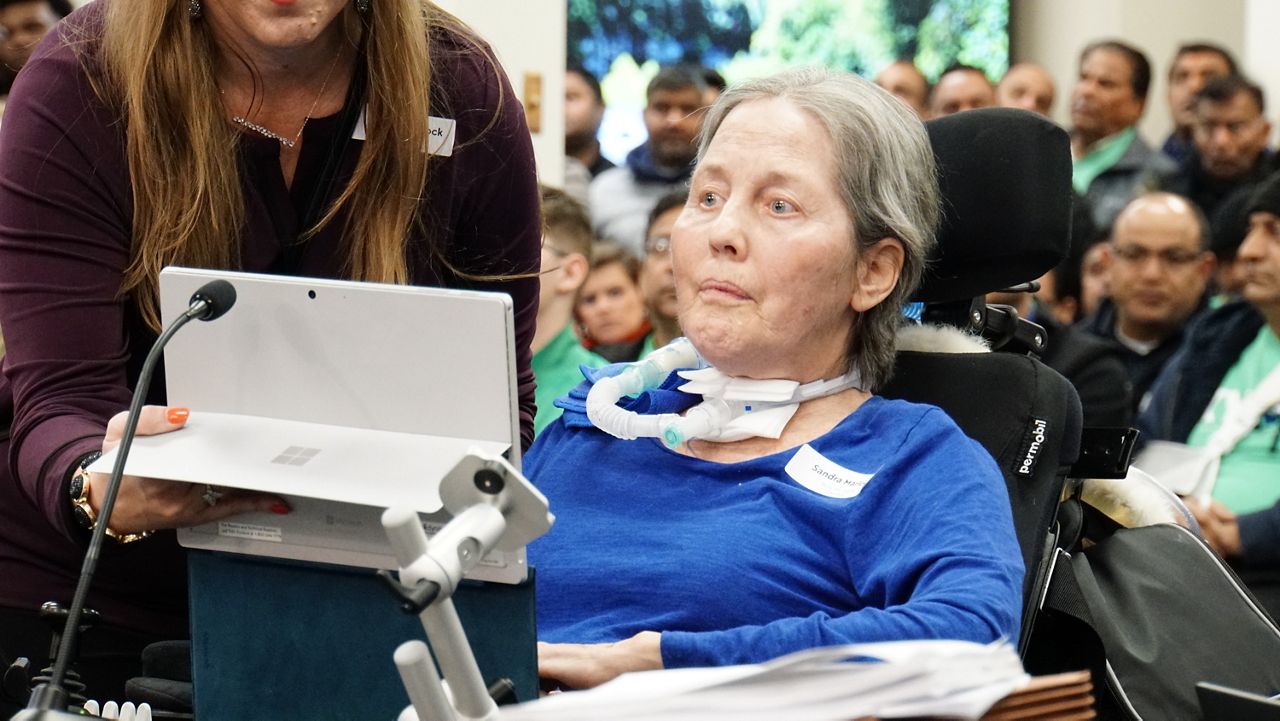FRANKFORT, Ky. — Supporters of legalizing medical marijuana in Kentucky achieved a breakthrough Tuesday when their bill cleared a Senate committee with support from a key Republican leader after years of running into a roadblock.
Medical cannabis supporters broke into applause when Senate Majority Floor Leader Damon Thayer voted for the bill after years of opposing marijuana-related legislation. Thayer approved of the bill’s narrow focus and said his support was for “those who suffer.”
What You Need To Know
- A key Kentucky Senate committee advanced a measure to legalize medical cannabis, a major breakthrough in the chamber's yearslong opposition to marijuana-related bills
- With a new burst of momentum, it heads to the full Senate, where legalization bills died in past years without even getting a committee hearing
- Frustrated by the years of inaction, Gov. Andy Beshear partially lifted the state's ban on medical cannabis last year, but he called for lawmakers in Frankfort to pass their own legalization
- The bill wouldn’t take effect until the start of 2025, to allow state health officials time to craft regulations to oversee the program
One of the people who spoke in favor of the bill’s passage was Sandra Marlow, who was diagnosed with ALS in 2020. Marlow must use a ventilator to breathe and can no longer speak. She gave her testimony via a computer-aided device.

“This disease will take my life,” Marlow said. “I ask that my days be as comfortable as possible with access to the THC tincture, that is the only thing that gives me relief.”
Thayer told reporters after the meeting it is rare for him to change his mind on an issue. “I did on industrial hemp, and I did today on medical marijuana.”
Following the vote, advocates like Julie Cantwell applauded the bill’s committee passage.
“We feel great about it, we feel that this bill could help a lot of people, I’m still kind of shocked over Thayer’s yes vote,” Julie Cantwell with Kentucky Moms for Medical Cannabis said.
Cantwell’s adult son uses cannabis to treat epilepsy. Under this legislation, his condition would be covered.
The measure — Senate Bill 47 — cleared the Senate Licensing and Occupations Committee on an 8-3 vote. With a new burst of momentum, it heads to the full Senate, where legalization bills died in past years without even getting a committee hearing.
If it passes the Senate this time, the bill would need House approval in the final few days of this year's 30-day legislative session. The House passed similar versions in the past. Republicans have supermajorities in both chambers.
Frustrated by the years of inaction, Democratic Gov. Andy Beshear partially lifted the state's ban on medical cannabis last year. Beshear’s action allows Kentuckians to possess medical cannabis for specified conditions, provided it's purchased legally in other states. They need to keep their receipt for proof and need certification from a licensed health care provider to verify they have a qualifying condition.
The bill now moving in the Legislature would legalize and regulate medical marijuana.
Under the measure, medical cannabis could be prescribed for a list of conditions, including cancer, multiple sclerosis, chronic pain, epilepsy, chronic nausea and post-traumatic stress disorder. A person would have to be approved for a card allowing its use. A patient under 18 couldn’t possess or acquire medical cannabis without assistance from a designated caregiver.

Most notably, the bill wouldn’t take effect until the start of 2025, to allow state health officials time to craft regulations to oversee the program, said Republican Sen. Stephen West, the bipartisan bill's lead sponsor.
The Senate committee debate Tuesday was reminiscent of past hearings on medical marijuana.
The bill's opponents expressed sympathy for people suffering from chronic pain and other illnesses, but warned that cannabis use could become addictive and lead to use of other drugs.
“There remains, in the views of many, insufficient scientific evidence that marijuana is an effective pain relieving agent,” said Michael Johnson with The Family Foundation.
Eric Crawford, a fixture in the campaign to legalize medical cannabis, made the same pitch he's made to Kentucky lawmakers for years. He said he uses medical marijuana as an alternative to opioids to deal with pain and muscle spasms from injuries he suffered in a vehicle crash decades ago.
“Cannabis helps me," Crawford told the Senate committee. "I know what is best for me. I don’t want to be high. I just want to feel better.”
The Associated Press contributed to this story.



